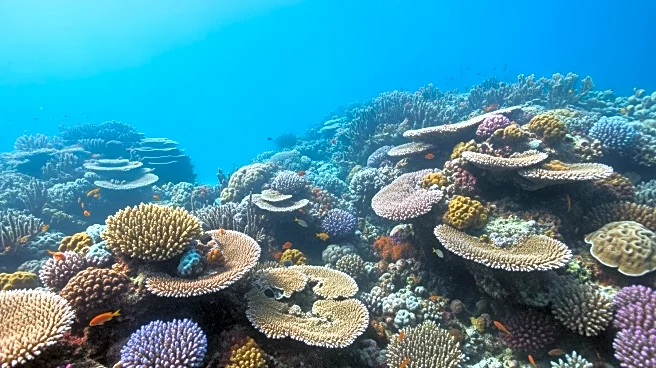What's Happening?
Scientists have issued a stark warning regarding the state of Earth's coral reefs, indicating that rising temperatures have led to a critical tipping point that may result in irreversible damage. According
to the Global Tipping Points Report, the warming of ocean waters is causing significant dieback of warm-water coral reefs, which are vital to marine ecosystems and the livelihoods of hundreds of millions of people. Tim Lenton, an environmental scientist from the University of Exeter, emphasized the rapid pace of change, noting that other planetary tipping points include melting polar ice sheets, dying Amazon rainforests, and collapsing ocean currents.
Why It's Important?
The potential irreversible loss of coral reefs poses a significant threat to marine biodiversity and the economies of regions dependent on reef-related tourism and fishing. Coral reefs are crucial for protecting coastlines from erosion and supporting marine life. The degradation of these ecosystems could lead to a decline in fish populations, affecting food security for millions. Additionally, the loss of reefs would impact industries reliant on reef tourism, leading to economic challenges for communities in tropical regions.
What's Next?
Efforts to mitigate climate change and protect coral reefs are likely to intensify, with increased focus on reducing carbon emissions and implementing conservation strategies. Governments and environmental organizations may prioritize funding for reef restoration projects and research into adaptive measures to preserve marine biodiversity. The international community may face pressure to strengthen climate agreements and take decisive action to prevent further environmental tipping points.
Beyond the Headlines
The loss of coral reefs highlights broader ethical and cultural implications, as indigenous communities and cultures closely tied to marine environments face existential threats. The situation underscores the need for global cooperation in addressing climate change and protecting vulnerable ecosystems. Long-term shifts in environmental policy and public awareness may be necessary to foster sustainable practices and prevent further ecological damage.










